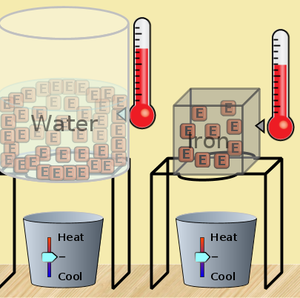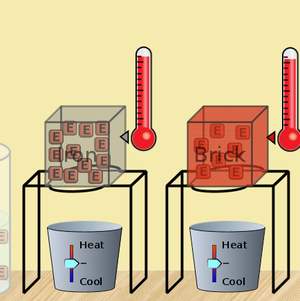Difference between revisions of "Energy Forms And Changes"
Jump to navigation
Jump to search
| Line 58: | Line 58: | ||
'''To link back to the topic page''' | '''To link back to the topic page''' | ||
| − | [http://karnatakaeducation.org.in/KOER/en/index.php/'''Give the link of the page name from where activity was given''' Back] | + | [http://karnatakaeducation.org.in/KOER/en/index.php/States_of_Matter'''Give the link of the page name from where activity was given''' Back] |
Latest revision as of 07:31, 11 September 2015
Activity No # 1 - Energy Forms And Changes
Shared By:
POORNIMA p.rai
panchalingeshwara high school
ishwaramangala
Estimated Time
15 minutes
Materials/ Resources needed
- Computer,
- Projector,
- Screen,
- Mouse.
Prerequisites/Instructions, if any
Focus on experiment
Multimedia resources
PhET Activity
Website interactives/ links/ simulations
file:///opt/PhET/en/simulation/energy-forms-and-changes.html
Process (How to do the activity)
Open PhET simulation called Energy forms and changes.



- Drag water beaker on heat stand
- Drag brick on other heat stand
- Drag the thermometers close water as well as brick
- Click on energy symbol
- Heat and cool the water beaker by dragging the icon towards heat and cooling symbol
- Observe the change in energy level of water as well as thermometer
- Note down the changes in your book
- Drag the iron block on the heating stand..
- Heat and cool the iron by dragging the icon towards heat and cooling symbol
- Note down the changes.
- Heat and cool the brick by dragging the icon towards heat and cooling symbol
- Observe the heating and cooling level of both iron and brick
- Compare the heating and cooling capacity of water , iron and bricks
Developmental Questions (What discussion questions)
- What change do you observe?
- what is the level of temperature in fig 1.0,1.1 and 1.2?
- What is cooling?
- Among the 3 objects which has more capacity to expand while heating?
- what is the S.I unit of energy?
- Among the 3 which object stores more energy?
- Why the reading of thermometer does not show beyond 100 °c while heating of water?
- Do the iron have melts?
Evaluation (Questions for assessment of the child)
- What are the 3 states of matter?
- What is thermometer?
- What are the effects of heat?
- what is the boiling point of water?
- Among the 3 which form of object changes its state faster?
- Name the object which does not expand on heating and cooling?
Question Corner
To link back to the topic page Give the link of the page name from where activity was given Back